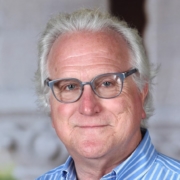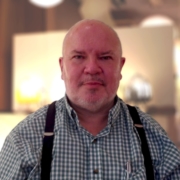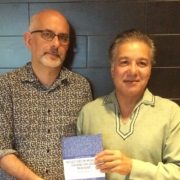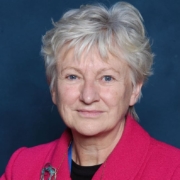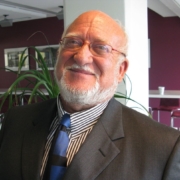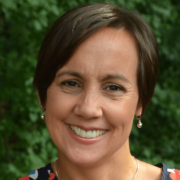Natasha Robinson
Transitional Justice and Education in South Africa
Today we talk about transitional justice, the role of truth telling in historical memory, and how education can help or hinder the process. With me is Natasha Robinson who has written a new book chapter entitled “Developing Historical Consciousness for Social Cohesion: How South African Students Learn to Construct the Relationship Between Past and Present.” Natasha Robinson is a Postdoctoral researcher at Oxford University and ESRC Fellow.
Citation: Robinson, Natasha, interview with Will Brehm, FreshEd, 274, podcast audio, March 21, 2022. https://freshedpodcast.com/natasharobinson
Will Brehm 0:59
Natasha Robinson, welcome to FreshEd.
Natasha Robinson 1:01
Thanks so much for having me.
Will Brehm 1:02
By way of introduction, can you tell me a little bit about the meaning of transitional justice?
Natasha Robinson 1:07
Transitional justice is just any way in which a society tries to get to grips with a legacy of past injustice. So, it might be through criminal trials. For example, the Nuremberg trials after World War Two. Or it might be through something, which they call a Truth and Reconciliation Commission, which is maybe a little bit less legalistic but just trying to bring to light some of the things that happened in the past. It might also include things like reparations, it might include memorialization. So, there’s a lot of different ways in which countries that have experienced violence or injustice in the past try to reconcile or transition. And all of that would be counted within the term transitional justice.
Will Brehm 1:47
So, it’s a pretty wide-ranging topic with a lot of material practices, let’s say. It takes different forms in reality. And so, you bring up the Nuremberg trials, other examples that you could sort of point to?
Natasha Robinson 1:58
Well, one of the most famous, I think, is from the South African context -the TRC, the Truth and Reconciliation Commission, which was facilitated or organized by the late Desmond Tutu. And that was quite a different approach to transitional justice because they were really trying to get to the truth of what happened, even if that meant that people wouldn’t be prosecuted for the crimes committed under Apartheid. So, for example, perpetrators of crimes under Apartheid were given amnesty if they would come and tell the whole truth about what they did. And it also gave victims an opportunity to testify and to really shed light on what they had experienced as a form of healing and, as I said, transition. And I think one of the really interesting things about the TRC in South Africa is that it was broadcast so publicly. Many of these hearings were recorded and then broadcast on national television and radio. So, it really became quite a national phenomenon of attempting to reconcile with this very difficult past of Apartheid.
Will Brehm 2:58
That is quite interesting, particularly when you compare it to Nuremberg which was more about punitive measures, right? It wasn’t just about getting the truth out there for healing purposes, it was actually trying to try the criminals that were behind this massacre. And so, in that South African case -but also with different examples, I can think of different museums that have cropped up, you know, like the Nanjing Massacre Museum in Nanjing, China, sort of, came out of that process of trying to remember a past that might have been forgotten and today is actually taken up by the government of China as part of their national identity in a way. But I guess one of the things I want to come to is this notion of truth because that seems a bit slippery in a way, right? Like, how does truth telling help with transitional justice?
Natasha Robinson 3:44
Yes. That’s such a great question. Truth telling has often become synonymous with transitional justice. And one of the reasons for this is because people often think that by truth telling, they prevent a form of social amnesia. So, it means that a population can no longer deny these horrors or injustices happened in the past. You kind of create a form of nationally-sanctioned social memory by which everybody accepts that this happened. But I completely agree, as you say, the truth and truth telling is a very slippery concept because often the way that the truth is told, or what I kind of call the structure of the truth, or the grammar of the truth can really, in some sense, prevent transitional justice taking place.
Will Brehm 3:48
It’s like because people have different experiences in the present. So, therefore, the way in which we might remember that present will necessarily be different.
Natasha Robinson 4:36
Yes, absolutely. I think that even the term history or talking about the injustices or things that happened in the past can have a certain influence on how we start to understand that truth or that injustice. So, for example, if you say that this injustice is now history or historical, it assumes that it doesn’t have a relationship with the present. That we have positioned it quite neatly in the past and therefore we can move on from it. That’s not to deny the truth of the past injustice but it is to position it in a certain relationship with the present. And as you say, that relationship with the present might not be universally shared. There are many reasons why people might feel that past injustices are actually not past but are continuing into the present and continuing to affect their lives in very material ways.
Will Brehm 5:27
So, it takes different forms through different generations, but that past history doesn’t disappear. It sort of continues on into the present and the future. It sort of shapes the future in many ways. And the other thing about this notion of truth telling as a way of being able to transition to some sort of justice and sort of overcoming, as you said, this social amnesia. Some people make the argument that social amnesia is actually valuable, right? Like the idea of forgetting something can actually be beneficial to moving beyond some of these historical problems that societies face. I think there was a book by David Rieff entitled In Praise of Forgetting right? You know, maybe there is some value to actually forgetting?
Natasha Robinson 6:08
Yes. I think that that is a legitimate argument except for the fact that the past does have material consequences on the present. And if we want to understand the present, then sometimes, we simply can’t forget the past. And I really like the position by Ladson Billings when she’s talking about the racialized inequality in education outcomes in the US, which has frequently been referred to as an achievement gap. But she advocates for calling it an educational debt. Because if we don’t consider the racialized history in the US, then we’re led to think that there’s no reason why Black and white students perform differently in school in the US. Or if there is a reason it’s a reason located in the present. And maybe it’s a reason individualized in relation to the intelligence or the family structures of Black families. Whereas actually, there are arguably very clear historical reasons why there is a racialized educational attainment gap in the US. And by calling it an educational debt, what Ladson Billings is doing is foregrounding this history which she is advocating we don’t forget.
Will Brehm 7:17
I think that’s a really great example, and in a way really shows why we shouldn’t forget, like you said. In Praise of Forgetting is actually kind of a really bad idea. Me as a white man should not forget about America’s history with slavery, right? And I totally agree. I think it’s such a nice way of putting it, thinking about an educational debt and trying to think through what that might mean collectively as a society in America. How else is transitional justice connected to education now that we’re bringing up notions of schooling and education?
Natasha Robinson 7:46
Well, I think because transitional justice often advocates for a truth telling approach, naturally, history, education, or history textbooks follows from that. So, many Truth Commission’s advocate for sections in history textbooks, for example, or aspects of history curricula that address past injustices. And so exactly in the South African context, there’s a great emphasis on really trying to understand what happened in the past, what injustices were done, who suffered and often have a kind of bystander-victim-perpetrator triangle mentality in which we really try to get kids to understand these past injustices in terms of who did what to when, and where and why. And so, we see a direct connection in many Truth Commissions between what the Truth Commission is reporting and recommending and then what ends up in history textbooks and curriculum.
Will Brehm 8:40
That’s quite interesting that Truth Commissions end up recommending using history by way of achieving some of their goals in transitional justice. I would imagine that including some of that history can be rather difficult and maybe, butt up against the government’s use of history to establish some sense of nationalism, which we know also happens through school. So, what do we know about how schools end up implementing some of these changes to history curriculum and textbooks to include some of these recommendations? Like, is it challenging? And is it hard and difficult at times?
Natasha Robinson 9:14
I think it’s extremely challenging, but for different reasons. So, it very much depends, as you would expect, on the identity of the teacher and the students in the classroom and their positionality in relation to the conflict that’s being discussed. I think in some schools or classrooms, teachers and students will find it quite easy to discuss past injustices, particularly if they feel that they were on the right side of history. Sometimes though, that’s obviously very difficult if by teaching this history, teachers feel that they’re leveling an accusation at their students or more likely at their student’s parents or grandparents. But also, it can be difficult because it brings up a lot of emotions. You know, in South Africa, teachers who suffered under Apartheid are now expected to teach Apartheid in quite an impassioned way. And students whose parents suffered under Apartheid are asked to write objective essays about these experiences in an example. And so, dealing with that emotional fallout often leads to quite sometimes strange or unusual pedagogical choices where teachers feel like maybe they need to really control the narrative either for their own well-being and psychological safety, or for the well-being and psychological safety of the students. And that form of control can sometimes prove challenging when actually what teachers often know they should be doing is facilitating discussion. But if you feel like you can’t control where that discussion is going it poses a risk when talking about very difficult histories. So, for example, in Germany, the history of the Holocaust wasn’t really grappled with until generations after the fact. And that’s quite common. In Rwanda there was a moratorium on teaching history after the genocide because it was just considered too sensitive, too polarizing to really be addressed by regular people, teachers, and children in classrooms. People who maybe didn’t have expert psychological training, political training, to know how to navigate or facilitate these extremely difficult conversations.
Will Brehm 11:11
That raises the possibility that -to go back to our earlier points about forgetting. It seems like forgetting might be necessary depending on how close you are to the incident that’s trying to be remembered, and how sort of emotionally charged and difficult it is. And you know, there needs to be some time to sort of figure out how we should begin to start teaching some of these difficult histories
Natasha Robinson 11:34
Exactly. And a little piece of work that I did with David Mills and which was published in The Daily Maverick really tries to address some of this in the South African context. So, if you look at classroom ethnographies from just after Apartheid, the students are often saying, “Thank goodness that Apartheid is ended. It’s in the past. We don’t need to talk about it anymore. It’s done”. And then a few years later, students are feeling extremely agitated, or angry about studying Apartheid. They feel that everybody goes on and on about it, and they don’t want to know about it. And it’s all rubbish. And everybody is just blaming each other and talking about race all the time and we just need to get over it. Whereas now, ethnography in history classrooms in South Africa shows that there’s a generation of young people who are really excited to engage in this issue. And maybe that evidence is that slight removal from the past where there is an emotional space to really look at this a little bit more objectively and not to be overcome by emotions of anger, or regret, or shame when actually addressing this difficult past.
Will Brehm 12:34
And so, in this South African case that we’re beginning to explore, what sort of outcomes happened with this sort of change where new generations of students might be ready to discuss some of this difficult history, where the Truth and Reconciliation Commission asked to implement certain difficult history into the curriculum to begin to think and talk and sort of transition to a more just society. The question is, did it work? What do we know?
Natasha Robinson 13:00
So, schooling in South Africa is extremely segregated still, which many people argue with the legacy of Apartheid. A legacy of the history that the schools are trying to teach. And so unsurprisingly, then, the way that Apartheid is taught in South Africa very much depends on the racial demographics of the classroom, the teacher, the wider community in which that school is situated. And this is some of the research that I’ve been doing which is looking at how the history of Apartheid is taught in schools with different racial compositions. The history curriculum in South Africa has what we call a narrative of rapture which is to say that the history curriculum follows the kind of the bad old days of Apartheid, talks about the human rights abuses that were perpetrated under Apartheid. It talks about them in a lot of detail. It focuses a lot on victims but very little on perpetrators, it talks about the struggle and the resistance to Apartheid, and then talks about end of Apartheid and uses the end of Apartheid as this moment of transition, or this moment of rapture after which everything changed about South Africa. What Apartheid is kind of doing in this narrative is marking a big distinction between the past non-democratic state of South Africa under the Nationalist Party and the new Rainbow Nation, ANC, Mandela-led South Africa after the end of Apartheid. That narrative is just a narrative. I mean, it could be told very differently.
Instead, the narrative could look at how many things in South Africa including segregated education are a legacy of Apartheid. So, I think it’s always important to think about how these narratives are constructed and what that construction is doing. What the South African curriculum does is legitimize the ANC as being kind of the midwife of a democratic South Africa. And of course, they do deserve credit, but that narrative really works within their favor. What I’ve been finding in my research, and I think that this is backed up by other ethnographies of history education in South Africa, is that teachers employ very different narratives in their classroom. Particularly, white schools really do embrace this narrative of rapture where we don’t really need to grapple necessarily with the legacies of the past because the past is in the past and we can now move on. Whereas Black teachers and Black students really try to emphasize much more the continuity between the past and the present, and try to understand why poverty and continuing crime rates and things like this can be explained by aspects of what happens under Apartheid. I mean, that’s a generalization. I mean, there are obviously kind of nuances within that but what we see is that although the truth of Apartheid, “the facts”, the who did what, when, and where, and why are taught very similarly and enshrined within the curriculum and taught quite accurately within the history classroom. The implications of what happened in the past and how that influences the present take very different forms depending on the racial demographics of that school.
Will Brehm 16:02
That’s quite an interesting insight. And it makes me wonder if those differences by racial composition, where white teachers, in general, focus on this narrative of rapture and see the past is the past and the present is a new beginning that has no connection to history. Whereas in primarily Black schools and Black teachers, they’re generally focusing on how these historical legacies continue into the present and shape the world we experience today. Does that have any sort of social or political ramifications? So, if the history education narrative, as you said, is written in a way to legitimize the ruling party, in schools we see this pretty big division, different ways of thinking about history. It just makes me wonder, does this then translate into different experiences of the lived world in society for Black and white students? Does this result in sort of a political problem for the legitimacy of the ANC or other politics and parties? How does it translate into life beyond the school?
Natasha Robinson 17:04
Absolutely. I think that we were talking earlier about whether or not we should forget the difficult past. And I think one of the challenges with that, as we were saying, is that the past has so many implications for how we think about contemporary problems. And whether or not you draw on the past to think about contemporary problems often shapes the way in which you vote, or the political party that you support, or the potential solutions that you see for problems. And often in post-conflict societies, it is exactly these legacies that are under debate. For example, you can see in the US, should Black people receive reparations for the history of slavery depends on a certain understanding of the implications of slavery in the present. Similarly, in Northern Ireland, which is where I’m from, Brexit has unleashed a whole new conversation about the legacies of the past and where Northern Ireland stands within Europe, within Ireland, within the UK. And so, these start to have very real political implications. Your question reminds me also of a really interesting paper written by Chana Teeger where she was interviewing South Africans about what they perceived as causes of crime. And what she found was that white South Africans didn’t bring up Apartheid as a cause of crime. They located because of crime much more within individual families, in poverty. Whereas Black South Africans did often raise Apartheid as a reason why the crime rate in South Africa is so high. And of course, if you have different explanations for why crime exists in South Africa, it’s likely that you’re going to have different solutions to tackle issues of crime. And this might be one explanation why voting patterns in South Africa are still so racialized. And I’m really struck by conversations that I had in one majority white school with white students who were talking about poverty in South Africa, and why there’s so much economic disparity. And they, again, were very reluctant to attribute the economic disparity in South Africa to anything to do with the past or with Apartheid. And it was a real challenge in getting them to think about intergenerational wealth, for example. And they thought that if you worked hard enough that anybody could be as wealthy as their families were. And so, they really didn’t see any reasons for reparations because if you were poor, it wasn’t because of the past, it was because you didn’t work hard enough. Whereas Black students in South Africa, some at least, had quite sophisticated understandings of intergenerational poverty and intergenerational wealth and what happens when, even if you succeed as an individual, but the rest of your family is poor, how that might result in your savings being used to support family members rather than your savings being put into investments that might then provide education and security for future generations. And so, these Black students drew a very direct link between land or property that was removed from their grandparents under Apartheid, the poor quality of education that their parents received under Apartheid, and their -these student’s- contemporary experiences of poverty. They saw their poverty as a consequence of Apartheid. And then following on from that, inevitably, they thought that an appropriate form of transitional justice would be reparations, or at least affirmative action to support them entering university or achieving educational success. So, in very, very practical ways, we start to see how this interpretation, not of the facts of Apartheid, but of the legacy of Apartheid. Understandings of the legacy of Apartheid, how that starts to shape political attitudes and decision making around contemporary problems.
Will Brehm 20:42
It is. It’s so fascinating. And it begins to call into question, perhaps some of the recommendations by the Truth and Reconciliation Commission of focusing on history education as being the sort of, “solution” to this problem of injustice in our past and how to overcome it. And maybe there are actual limitations to what history education can do, because once a teacher closes the door, he or she can really teach it in very different ways with historical narratives being able to sort of morph and be socially constructed so easily a very different outcome can happen between different groups of people, which ultimately reinforce some of the problems that existed prior to the Truth and Reconciliation Commission.
Natasha Robinson 21:25
Yeah. I think that’s completely right. I think one of the things that it demonstrates is the importance of mixed schools -of interracial classrooms for example- where certain singular dominant narratives can’t exist without a level of challenge or rebuttal from the other students in the classroom. But another thing that I think is very interesting is just how infrequently history textbooks or history curricula really tried to address the legacies of the past. In South Africa, for example, the curriculum talks about Aartheid, the textbooks talk about Apartheid, but it never tries to make a connection between the past and the present. And I really understand why that might be. It’s easy to talk about a difficult past -or not easy, but easier to talk about the difficult past- if we don’t weigh it into what that means for the present. Because when we start to connect the past and the present, then the past starts to make expectations of us. We maybe need to give up something in order to repair a past wrong. That becomes extremely difficult. So, on the one hand, you can see the South African curriculum is being extremely brave for addressing this very difficult emotional past. But on the other hand, I think it does really miss a step when it doesn’t help teachers and students to construct a relationship between the past and the present, and really helps students to understand how history can be used as a tool for making sense of the present.
Will Brehm 22:47
Is this what you call historical consciousness? Because in your writing, you basically say that this is one approach that history education may want to take going forward to sort of overcome some of these limitations that you’ve been highlighting?
Natasha Robinson 23:00
Yes. I mean, there’s many definitions of historical consciousness but this is one that I find very useful and very convincing. This ability of students to be able to draw relationships between the past and the present. And many history educators have advocated that this is really what history is for. It’s really to help students sense-make in the present. But I think what has been under-theorized or under-considered, is just exactly how difficult this is in post conflict societies whereas I say, the past might expect something from the present. Again, reminded of a school that I was observing where the white teacher had done a lot to try to prevent students drawing connections between the past and present. For example, a Black student in the classroom had made a point about how her grandmother had been forcibly removed from her house during the Group Areas Act in the 1950s, and forcibly relocated to an entirely Black area of the city and how her grandmother still lived in that Black area of the city. And this student was trying to draw a causal relationship between the Group Areas Act and the living circumstances of her grandmother in 2018. And the teacher was very quick to dismiss that. You know, didn’t want to get into that conversation. But later on in the school year, he was teaching about D.F. Malan, who is commonly referred to as the architect of Apartheid and an Indian student in the classroom asked, “If D.F. Malan was the architect of Apartheid why do you still have schools in South Africa named after D.F. Malan”. For example, at the time, there was a D.F. Malan High School in Cape Town. And the teacher again didn’t want to get into that conversation. He talked about how school names are decided by school governing bodies, and you know, blah, blah, blah, you know, really kind of got into the administrative detail of the question. But the students weren’t having it. They wanted to discuss this issue of memorialization and why we’re allowing a school to be named after somebody who the history curriculum says did these awful things. And what was really interesting in that classroom but was quite racially diverse was that it really split the class. And a class that had previously been very united and very good friends all of a sudden became quite racially segregated. With the Black, Indian, colored students saying that this is a disgrace, we would never send our children here, we would feel that it would be abhorrent to attend a school named after D.F. Malan whereas many of the white students saying no, no, it’s just a name. You know, it has nothing really to do with the past. It’s not a big deal. And so, previous to this encounter, I had felt that this history teacher was avoiding the most exciting, interesting questions about history. But after this encounter, I realized, wow, this was his attempt to try to keep the lid on bubbling racial divisions within the classroom. And actually, in a circumstance where he can’t control those divisions, maybe the best thing he could do is just not make connections between the past and the present. Yes, of course, I think historical consciousness should be developed in schools and should arguably be a purpose of history education, but I think we can’t deny that in post-conflict societies, this is just extraordinarily difficult. And maybe more time needs to pass before this is really a possibility.
Will Brehm 26:10
Natasha Robinson, thank you so much for joining FreshEd. It really was a pleasure to talk. It’s such a fascinating topic that I think extends far beyond South Africa.
Natasha Robinson 26:18
Thank you so much.
Want to help translate this show? Please contact info@freshedpodcast.com
Guest Publications/Projects
Young South Africans Renew an Interest in History – Right on Time
Mentioned Resources
Findings and Recommendations of The Truth and Reconciliation Commission in South Africa
Nanjing Massacre Memorial Hall
In Praise of Forgetting – David Rieff
From the Achievement Gap to the Education Debt – Gloria Ladson-Billings
How South Africans use the past to explain crime – Chana Teeger
D.F. Malan: A Political Biography
Holocaust Education in Germany
The History Syllabus in Post-Genocide Rwanda
Recommended
The Segregated Schooling of Blacks in the Southern United States and South Africa
Generational Victimhood in Post-apartheid South Africa
Education and Truth Commissions
“Both sides of the story” History Education in Post-Apartheid South Africa
History Curriculum and Teacher Training: Shaping Democratic future in South Africa
The State and the Volving of Teaching about Apartheid in School History in South Africa
South Africa’s TRC in History Textbooks and the Implications for Peace
Learning from the South African and Rwandan School Curriculum Documents
Black African Parents’ Narratives on Aparteid Schooling and School History
Confronting Controversial Issues in History Classrooms in Post-Apartheid South Africa
History Education and Race Relations in Post-Apartheid South Africa
Have any useful resources related to this show? Please send them to info@freshedpodcast.com

